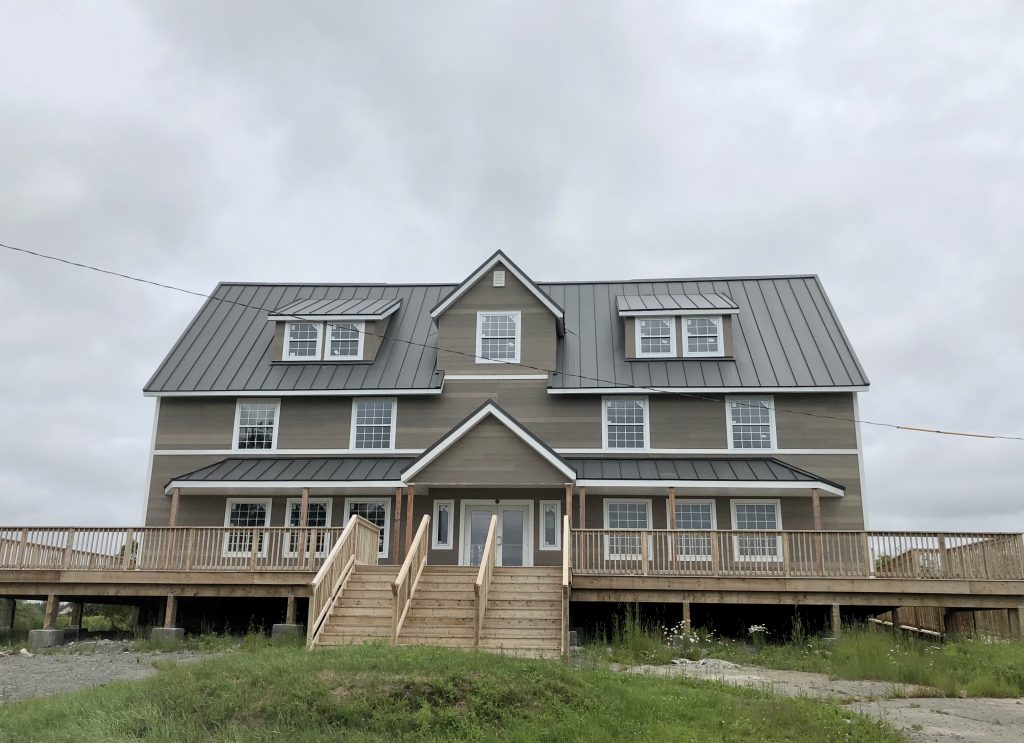This is part of our Investment Readiness Program series, showcasing how IRP funding is helping social purpose organizations prepare for investment while continuing to have a positive impact on their communities.
The rural community of Preston, Halifax is home to the largest and oldest African-Canadian community in Canada. Spencer Colley, retired police officer and former construction business owner, has lived in East Preston almost all of his life. “We were put here in the 1800s, not to survive, but we did survive. We came a long way,” he says of the African Nova Scotian community.
The province’s Black community has faced racism for decades, including land ownership disputes in the Preston area. Today, Colley sits on the board of Akoma Holdings Inc., currently offering low-cost offices, an event hall and community garden a few miles out of Preston, in Dartmouth.

Akoma owns 310 acres of property, which it is redeveloping into a larger mixed-used lot of affordable housing, cultural and commercial spaces. To date, this is the largest number of African Nova Scotians to own the property. “We want to show the world, show the government, show the people that we weren’t just here for the sake of coming here to die,” Colley says. “We were here, and we made good of ourselves. We have doctors, lawyers, professors, senators who came from the Black community. We’re here to stay, and we can help make the community a better place to live.”
As a social enterprise, Akoma serves the African Nova Scotian community in Dartmouth and surrounding areas, as well as other cultures and groups. Their space is rented out for weddings, baby showers and more, with clients ranging from church groups to the YMCA. “We want to open our arms to anybody who comes to us, looking for service,” Colley says.
Through redevelopment, the board’s mission is for Akoma to become financially sustainable, driving economic growth in the local area, and improving the community’s wellbeing. While current rentals bring in some revenue, Colley acknowledges the need for more funding to complete construction. “We don’t overcharge people — we’re trying to help them as much as they’re trying to help themselves.”
Akoma receives $100,000 to prepare for investors
Once Akoma’s 310 acres are turned into multi-purpose lots and affordable housing, it can quickly become self-sustaining through rentals and land sales. However, to reach that point, Akoma requires investments for everything from development agreements with the City of Halifax to the construction work itself. Investors, in turn, require proof that a project is not only feasible, but that returns on investments will be made.
“Everything today costs money, and we don’t have a handful of money,” Colley says. “We’ve been going by the grants that we get, and we put a lot of hard labor in ourselves. We want partners to help us do this.”
And this is where the Investment Readiness Program (IRP) comes in.
The board applied for IRP funding in January 2020, and received $100,000 in non-repayable capital: one-time funding they’ll never need to repay (unlike money from investors). The majority of the $100,000 will go towards creating business plans, financial modelling, viability studies and environmental assessments. These are all costly but vital resources that will bolster the board’s pitch to potential backers, so Akoma can finalize construction and start generating more revenue.
In this way, IRP supports Akoma in becoming investment ready, to bring to life their vision for a thriving, sustainable community.

Looking to the future
Akoma’s board has big plans for their land, which currently includes a former children’s home, two childcare residential facilities, a renovated community centre, a cottage, and another building housing an economic development agency.
The board is looking to add everything from restaurants, hair salons and sports facilities to a nursing home, which Colley says is “very needed in the community”. They’re also considering a halfway house for former inmates to support with community reintegration. As well as this, Colley would like to see an office for the Preston Township Committee, bringing together the three local Black communities: East Preston, North Preston and Cherry Brook.

Again, before those plans can launch, there’s a lot of construction work to be done, such as updating plumbing and electricity in the former children’s home. Despite this, Colley says that future tenants are already ready to go: “We’re showing investors more expansion is needed, because people are wanting to get involved by way of renting, or by purchasing land to build houses.”
Looking ahead, he adds, “We want to help build up the Black communities in Halifax, Dartmouth and surrounding areas. We want everybody. We’ll be an asset to the Preston community.”
Nickie Shobeiry is a writer, TV host and journalist, focusing on stories of social impact and entrepreneurship in Canada and beyond.




